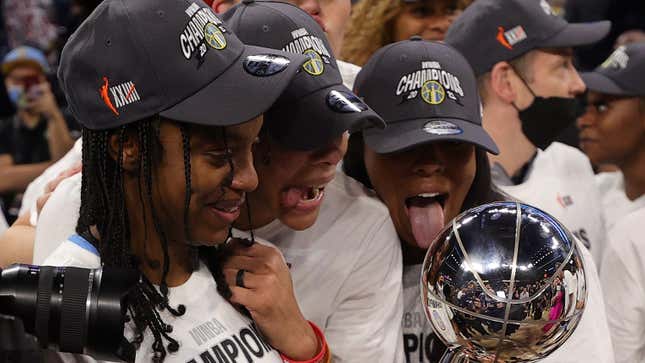Candace Parker Put Chicago, the WNBA on Her Back and Delivered a Win For Both
Parker and the Chicago Sky won the city's first-ever WNBA championship on Sunday night.
EntertainmentEntertainment

The Chicago Sky closed out a four-game series against the Phoenix Mercury on Sunday night, denying the Mercury their fourth championship in franchise history. It was a history-making moment for Candace Parker, who returned to her hometown of Chicago for the sole purpose of winning this championship. Chicago has now won a championship in every major sporting league in the US, becoming the third city to ever do so according to The Gist. But the series that led to this win, and its aftermath, has more significant implications for the WNBA at large which could potentially lead to the league finally getting the respect and financial investment it deserves.
The 2021 season, the WNBA’s 25th year in existence, saw huge improvements in viewership as well as in-person attendance despite the ongoing pandemic. Sports Media Watch reported that Game 2 of the finals was the largest audience the league has seen in four years, an incredible achievement considering that this year didn’t feature league favorites, the Seattle Storm. What made all of the difference in the viewership of that game, other than the players’ incredible skill, was that it was aired during the primetime block on ESPN as opposed to ESPN2, where women’s sports often get ignored. The league was given prime television real estate and, as is usually the case, they delivered.
-

-

-

-

-

-

-

-

-

-

-

-

-

-

-

-

-

-

-

-

-

-

-

-

-

-

-

-

-

-

-

-

-

-

-

-

-

-

-

-








































